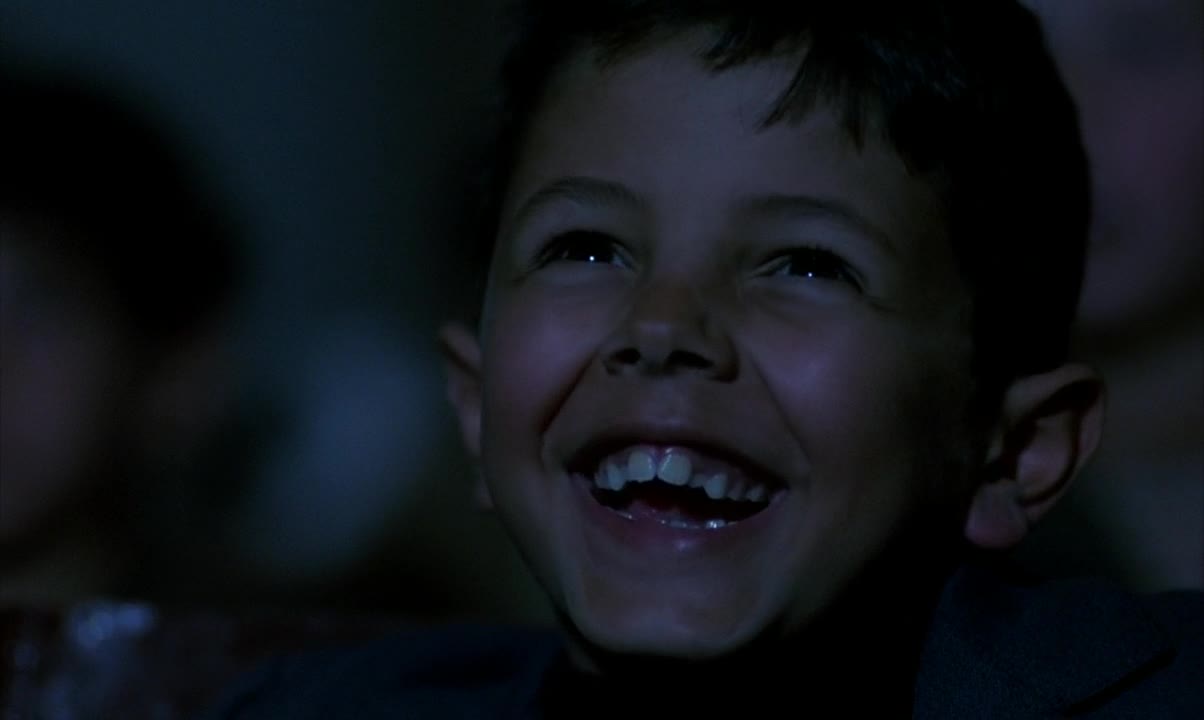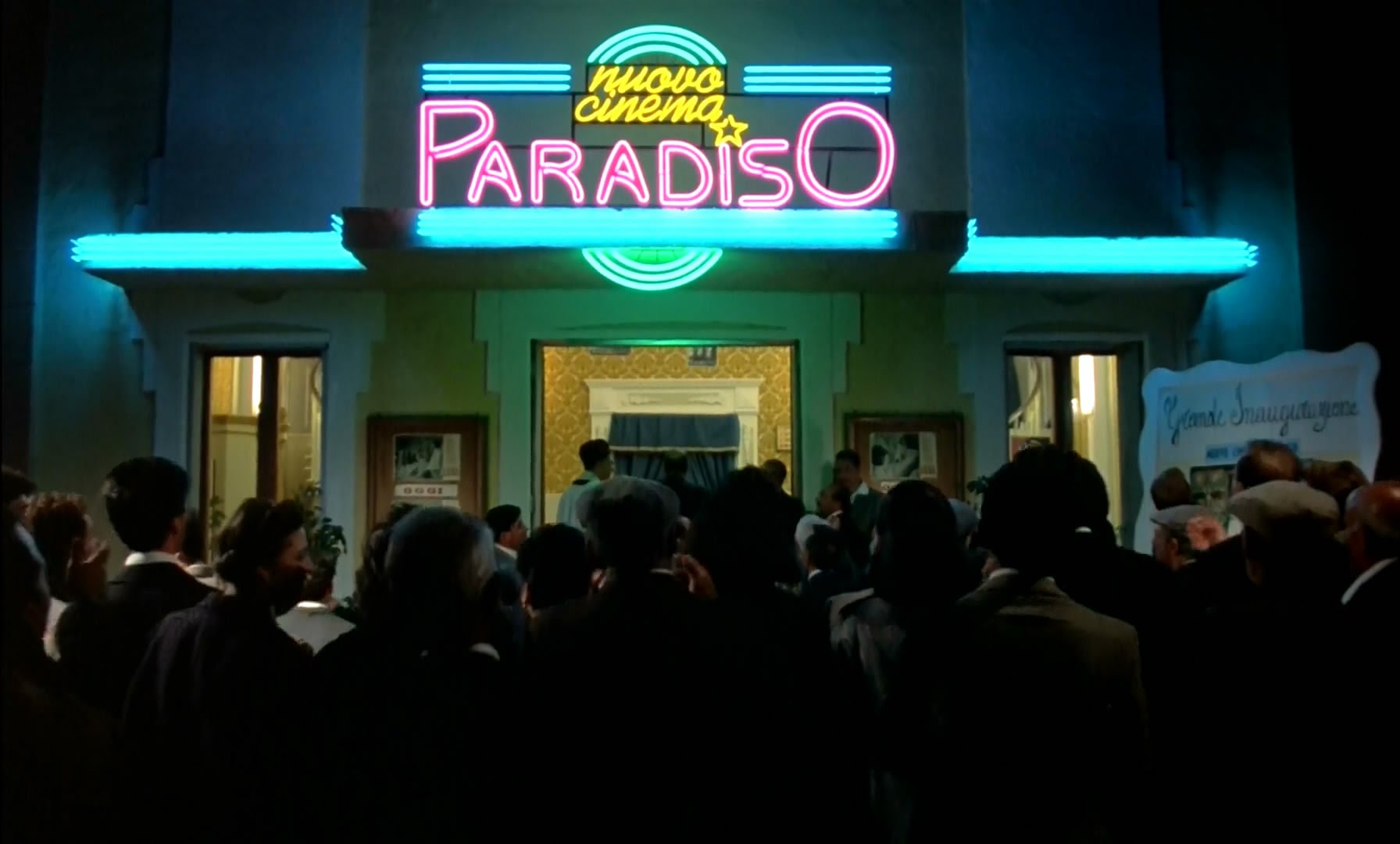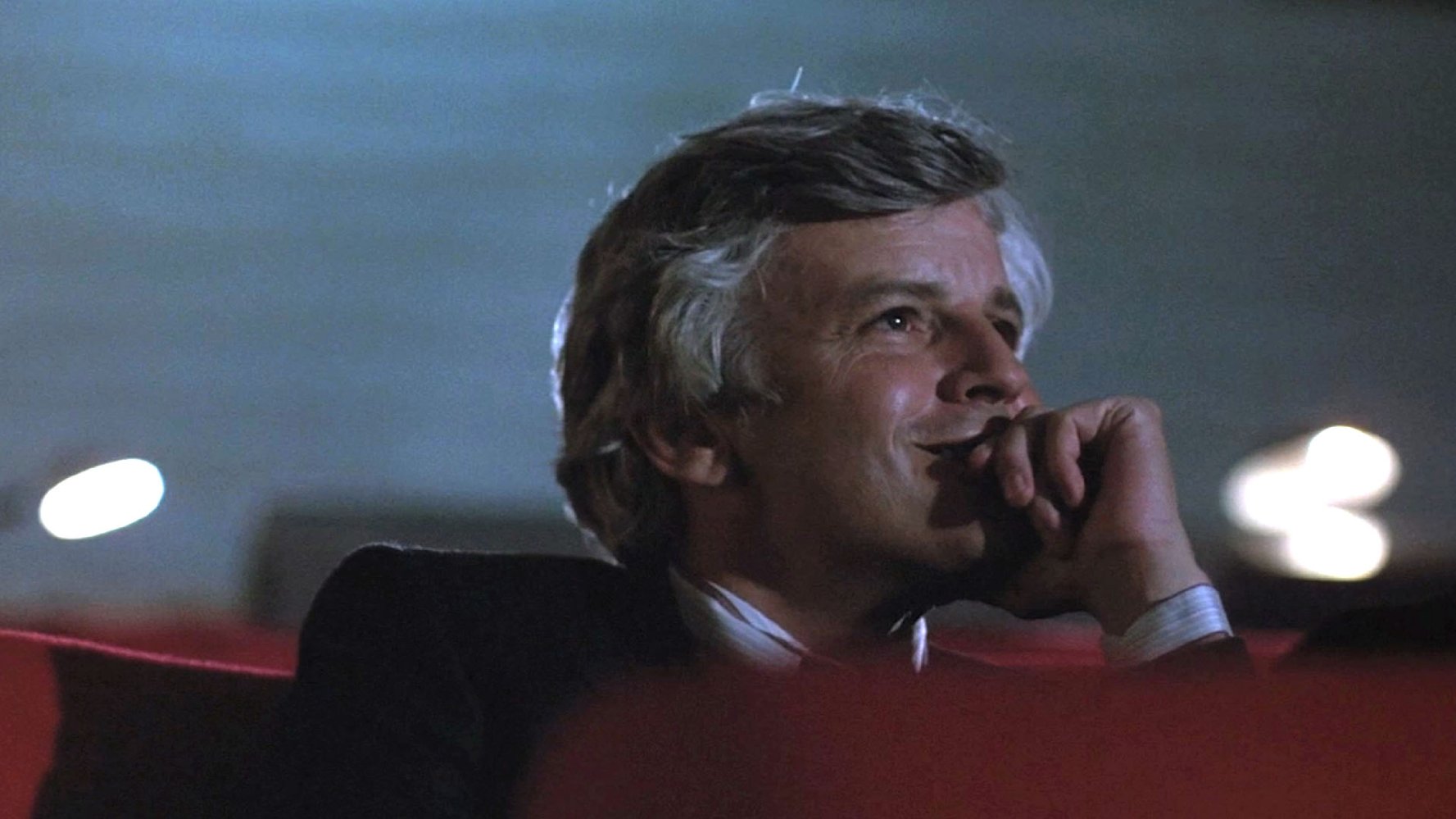Humor is the main ingredient in Giuseppe Tornatore‘s award winning masterpiece Cinema Paradiso (1988) that pulls you into its wonderful world and doesn’t let go. In the small Italian villa of Giancaldo we meet young Salvatore DeVita (Salvatore Cascio) also known as “Toto” who is an altar boy in church. From the outset we see he’s a mischievous little rascal. When the church closes, it becomes a movie theater, which is a perfect metaphor for what cinemas are about for movie lovers: a communal place where people can escape from their everyday problems and journey into other worlds. In the villa theater these alternate realities are created by artists like Charlie Chaplin, Jean Renoir, Lucchino Visconti and John Huston. The people are enraptured and filled with delight as they laugh, cry and become aroused at the moving images on the silver screen. It’s all because of that heavenly machine that sits above them and shoots light through a reel of celluloid which is run by the kind old man Alfredo (Phillipe Noiret). Little Toto loves the movies too and he also likes to harass poor Alfredo who basically lives in the booth. Alfredo does his best not to get upset with Toto but it’s impossible because this kid cannot stop bugging him. We learn that Toto’s father has gone away and hasn’t returned, and so he really needs some type of father figure which he finds in Alfredo.
One night Alfredo sets up the projector so it can be seen outside in the villa square, and he aims the image on the wall of a mans home. The man gets angered when he notices the large gathering of people outside but then just goes to bed. As the people laugh at the movie, Alfredo doesn’t notice the nitrate based film has caught fire on the projector behind him and when he does see it, it’s too late. Alfredo panics and tries his best to stop the flames but they set him and the theater on fire. Alfredo’s life’s work has attacked him in a way he never had expected. Little Toto runs in and finds Alfredo and pulls him from the blaze. He is able to save Alfredo’s life, but tragically the old man succumbs to his injuries and goes blind as a result.
Mr. Ciccio a wealthy businessman sees the burnt out theater and knows how it will affect the townsfolk who have come to regard it as a second home. Like the flick of a projector switch, the wreckage is transformed into Nuovo Cinema Paradiso, and the entire building is renovated with a bright neon sign and given a plush new interior decor. The people are thrilled and rush in to get seats. With Alfredo unable to run the projector, the job is given to none other than Toto, who even at a young age has learned how to do reel changes thanks to his mentor and friend Alfredo.
Years pass and we rejoin Toto as he enters into his teens. He still loves movies and has become an expert on them as well as a master projectionist at the theater. He also likes to use his own camera to document the goings on around town. Toto soon experiences falling in love for the first time with a blonde haired blue eyed beauty who thrills his soul even more than the movies. Seeing Toto’s potential for greater things in the world, Alfredo continuously tells him not to stay in the small town and to leave while he can. In one of the most touching scenes, Alfredo pleads with Toto who has decided to leave, not to come back to the tiny villa. Toto listens to Alfredo’s words and never returns until he hears of the old man’s passing many years later.
The music is by none other than the legendary Italian composer Ennio Morricone who created a joyously romantic audio accompaniment to the film. Morricone provides the perfect music for this tale bringing a feeling of times gone by as the older Salvatore DeVita fondly recalls the memories of his youth and his love of the movies he grew up watching at Alfredo’s theater.
Cinema Paradiso is one of the most wonderful love letters to movies. Tornatore even adds another layer of cinematic depth by using the different films the townspeople view to reflect the changes in the culture as well as Toto’s coming of age. Maybe the most special aspect about it is that anyone who watches films from the casual viewer to the most seasoned critic can equally enjoy and be moved by the experience. Be aware that there is Tornatore’s original director’s cut (which is less popularly known) and a shorter US theatrical cut (which is the de-facto internationally known version). The latter was made under pressure from Miramax and is a vastly different motion picture. Whereas Tornatore’s original vision is a more adult, raw coming-of-age story, the now famous international version is the tear-jerking romance everyone has come to love.












4 thoughts on “Cinema Paradiso”
Still havent seen it. I have it but I havent mustered the energy to watch it. I know I will endlessly love it but it will consume a lot of energy, all this love for the movie. I will save a whole day to savor it at some point
i dont get emotional at movies that much but this one will get to you.
this is one all film geeks should see at least once.
I LOVE this film. Especially the ending. I’m also a fan of director’s 1998 film The Legend of 1900.